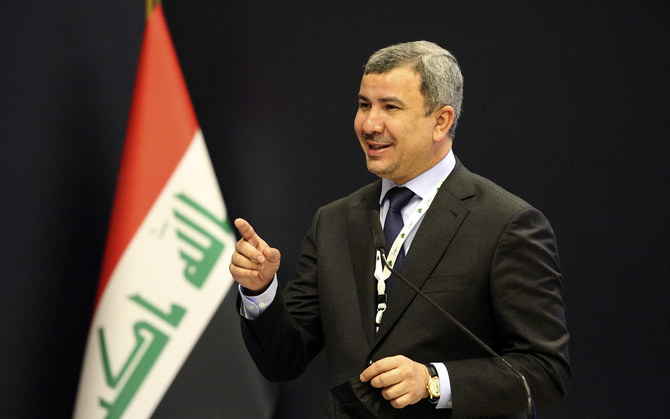RIYADH: Egypt’s non-oil private sector contracted further in April according to S&P Global, while Lebanon saw its economic decline slow across the month.
The north African country’s Purchasing Managers’ Index hit 48.5 in the period, down from 49.2 in March.
This contraction was driven by a reduction in domestic and foreign demand, which caused new orders to fall for the second consecutive month.
Any figure below 50 indicates a decline, while above that number shows growth.
Lebanon’s PMI report, produced by S&P Global in association with BLOMINVEST Bank, showed a rise in April to 49, up from 47.6 in March.
Despite this marginal increase, the figure is still lower than earlier this year, when the country registered a healthy reading of 50.6 in January and 50.5 in February.
The figures for the countries come as PMI figures across the Middle East and North Africa have generally been reflecting the rapid expansion and growth of private firms.
In April, Saudi Arabia’s PMI stood at 55.6, while it was 54 in the UAE and 54.2 in Kuwait.
Reflecting on Egypt’s decline, David Owen, senior economist at S&P Global Market Intelligence, said: “Business activity weakened for the second month running in April as firms highlighted an additional drag from falling sales.”
He added: “Some companies signalled that weakness in international markets had hit business confidence and spending, amid wider concerns that rising global economic uncertainty and changing trade policy could soften demand across several markets.”
Business optimism up in Egypt
In January, Egypt’s non-oil business activities entered the expansion zone, with the PMI hitting 50.7. It was followed by another healthy month of growth in February, where the PMI stood at 50.1.
According to the survey, the rate of contraction of non-energy business activity quickened from March and was the fastest seen in four months.
The report revealed that lower levels of activity and new work led non-oil companies to rein in input purchases for a second month in a row.
Due to limited business activities, companies in Egypt were also keen to limit headcounts, with the latest data signalling a decline in employment for the third successive month.
S&P Global further said that input prices in the country’s non-oil economy rose at their fastest pace in four months in April, marking a notable reversal from March, when inflation dropped to a 58-month low.
“Subdued pressure on input costs in recent months helped firms to steady their own prices in April, which should bring some reassurance that inflation headwinds are easing,” said Owen.
He added: “Although input costs rose at a much sharper pace over the month, this was mainly attributed to the roughly 15 percent uplift in fuel prices, rather than underlying inflationary pressures.”
Regarding the future outlook, non-oil firms in Egypt expressed more confidence, with optimism ticking up to a three-month high.
Firms that expressed future confidence hoped that market conditions at home and abroad would strengthen in the coming months.
In February, global credit rating agency Moody’s affirmed Egypt’s Caa1 long-term foreign and local currency issuer rating with a positive outlook, driven by prospects for improvement in the country’s debt service burden.
The report said that the positive outlook was given due to the country’s strengthening foreign exchange buffers.
Moody’s awards a Caa1 rating to countries with poor quality and very high credit risks.
Private sector activity in Lebanon falls at slower pace
According to the latest report, Lebanon’s private sector economy remained under pressure at the start of the second quarter, as new orders and business activity shrank.
Purchasing activity and stock levels also dipped slightly in April, while firms’ expectations for the next 12 months fell into pessimistic territory for the first time since November.
“The BLOM Lebanon PMI recorded 49.0, implying a decline in private sector business activity for the second month in a row, but at a slower pace. This decline was mainly down to the marginal decline in new orders, reflecting weaker export demand,” said Helmi Mrad, senior research analyst at BLOM Bank.
The latest study also indicated a reduction in the volume of incoming new business received by private sector companies in Lebanon, due to factors including market conditions, security concerns, regional instability, and weak customer purchasing power.
“The debate regarding the surrendering of Hezbollah’s weapons escalated in the last couple of weeks as some of Hezbollah’s leaders stated that no one can forcefully remove their weapons. In the meantime, Israel’s breaches of the ceasefire agreement continue,” said Mrad.
He added: “This stalemate is having negative effects on business activity in the short-run, despite the progress made on the enactment of laws essential for financial restructuring.”
S&P Global also highlighted a fractional decline in employment across the Lebanese private sector at the start of the second quarter.



























